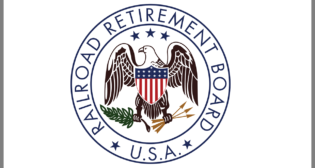
NJT FY 2018 budget: $3.6 billion
Written by William C. Vantuono, Editor-in-ChiefNew Jersey Transit has adopted a Fiscal Year 2018 budget of $3.6 billion “that supports continued investments in infrastructure and equipment to maintain the system in a state of good repair and enhance the overall customer experience.”
The budget allocates $2.22 billion for operating and $1.38 billion for the agency’s capital program.
Almost half of the revenue in the FY 2018 operating budget comes from passenger revenue ($1.01 billion), supported by a state and federal program reimbursements ($947.7 million), with the balance from a combination of commercial revenues ($115.2 million) and state operating assistance ($140.9 million). This budget reflects an increase in state and federal reimbursements, which NJT says will enable it to meet projected expenses this fiscal year. Approximately 61% of the operating budget is dedicated to labor and fringe benefits costs. Other significant expenses include materials and supplies and purchased transportation, 25% of the budget. Overall passenger revenue and commercial revenue represent approximately 51% of total revenue.
NJT’s capital program continues investments in railroad bridge rehabilitation, track replacement, signal upgrades, repairs to overhead catenary and electric substations as well as investments into the state-of-good-repair of the Northeast Corridor (NEC), the agency’s most utilized rail line, and Positive Train Control. Approximately 53% of the program funds the basic capital program improvements needed to maintain and improve the transit system, including $201 million in rail infrastructure needs and $109 million in rail rolling stock improvements. Included in this are 113 new multi-level EMU (electric multiple-unit) railcars that will replace 40-year-old, once-rebuilt Arrow III single-level EMUs. NJT expects to issue an RFP for their procurement by fall.
Approximately 50% of the capital budget comes from the Transportation Trust Fund (TTF), with 47% from the Federal Transit Administration (FTA) and Federal Highway Administration (FHWA), and 3% from other sources.
Other elements of the capital program include $47 million in rail station improvements; $168 million in bus and light rail infrastructure improvements ($99 million for replacement vehicles, $11 million for Capital Asset Replacement Programs for Newark Light Rail and Hudson-Bergen Light Rail, and $17 million for bus passenger facilities and bus support facilities/equipment); $86 million in system-wide improvements ($9 million for technology and $6 million for safety improvements); and $33 million in system expansion ($29 million for Northern Branch Expansion and $4 million for the Hudson-Bergen Light Rail Route 440 Improvement).
NJT Executive Director Steven H. Santoro said the budget is “balanced” and “reflects a laser-like look at individual business lines in order to maximize efficiencies and maintain a safe transportation system. As transit professionals, we owe our customers and stakeholders a solid plan that has the least impact on our riders. After much hard work, I am confident we delivered on that.”



